Posted by Andrew on April 24, 2020
Comments (0)
Without special configuration Google Analytics does not properly attribute revenue and transaction data for customers that use PayPal to pay for their order. This occurs because a customer is redirected from your site to PayPal (to pay for the order) and then redirected back to your site. Google Analytics considers this last redirect from PayPal back to your site as the referral source for this order rather than the actual referral source (e.g. organic search, paid search, email, social, direct, etc). For merchants interested in knowing where users, transactions, and revenue come from—in other words, everyone!—it's a big issue. This is especially true if paid advertising is involved. While individual ad platforms often track the revenue they generate separately from Google Analytics, having all site traffic properly attributed in the same place is critical.
Thankfully, Google Analytics does provide a way to solve this problem using the "Referral Exclusion List" setting. This feature is what it sounds like—a way to exclude a domain from being counted as a referral. Instead, Google Analytics counts the user's previous origin (i.e. how they got to your website) as the authoritative traffic source.
Google Analytics Configuration Steps
These settings are available by logging into Google Analytics and following these steps:
- Click the "Admin" gear icon
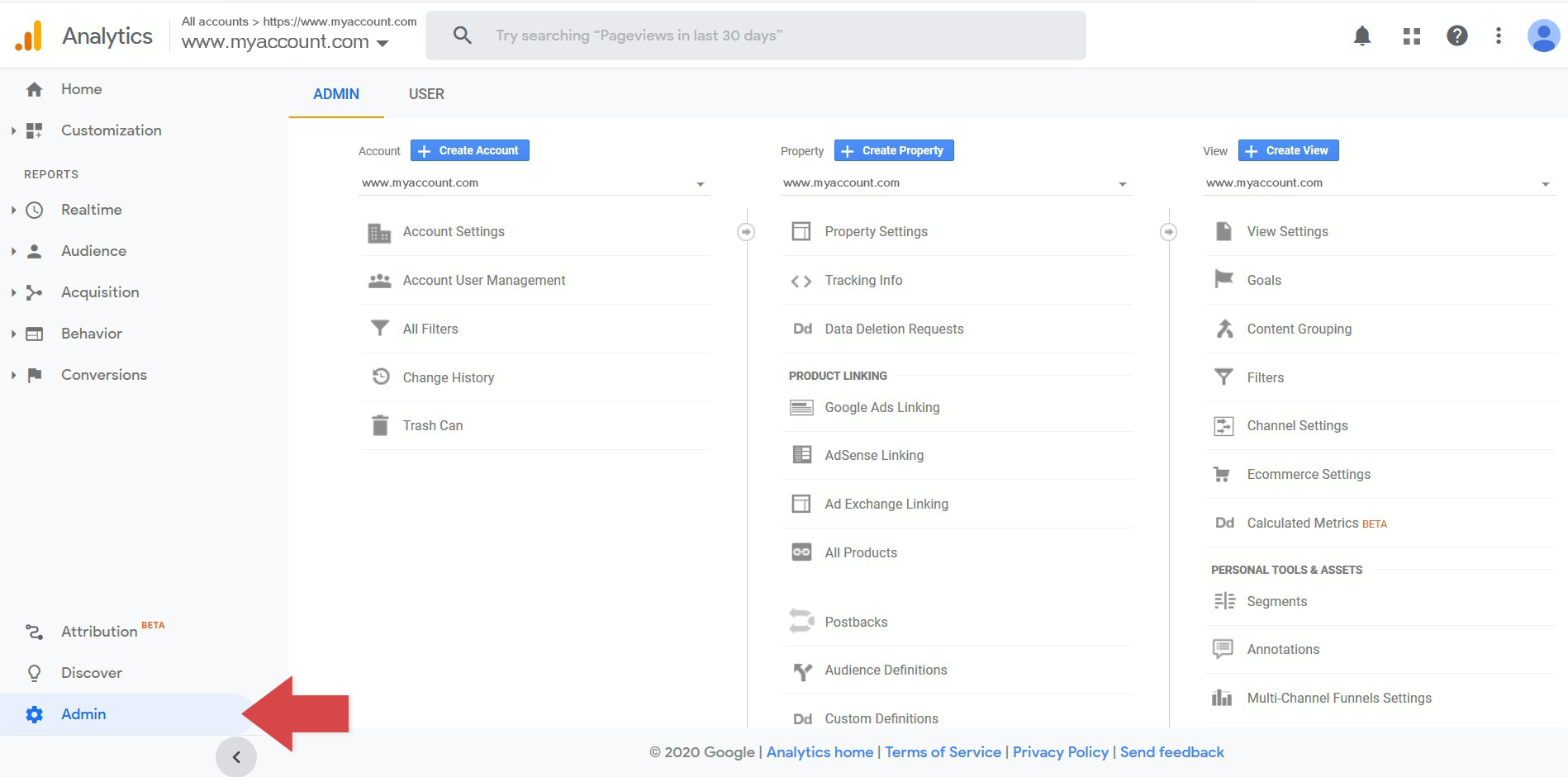
- Click the "< > Tracking Info" section
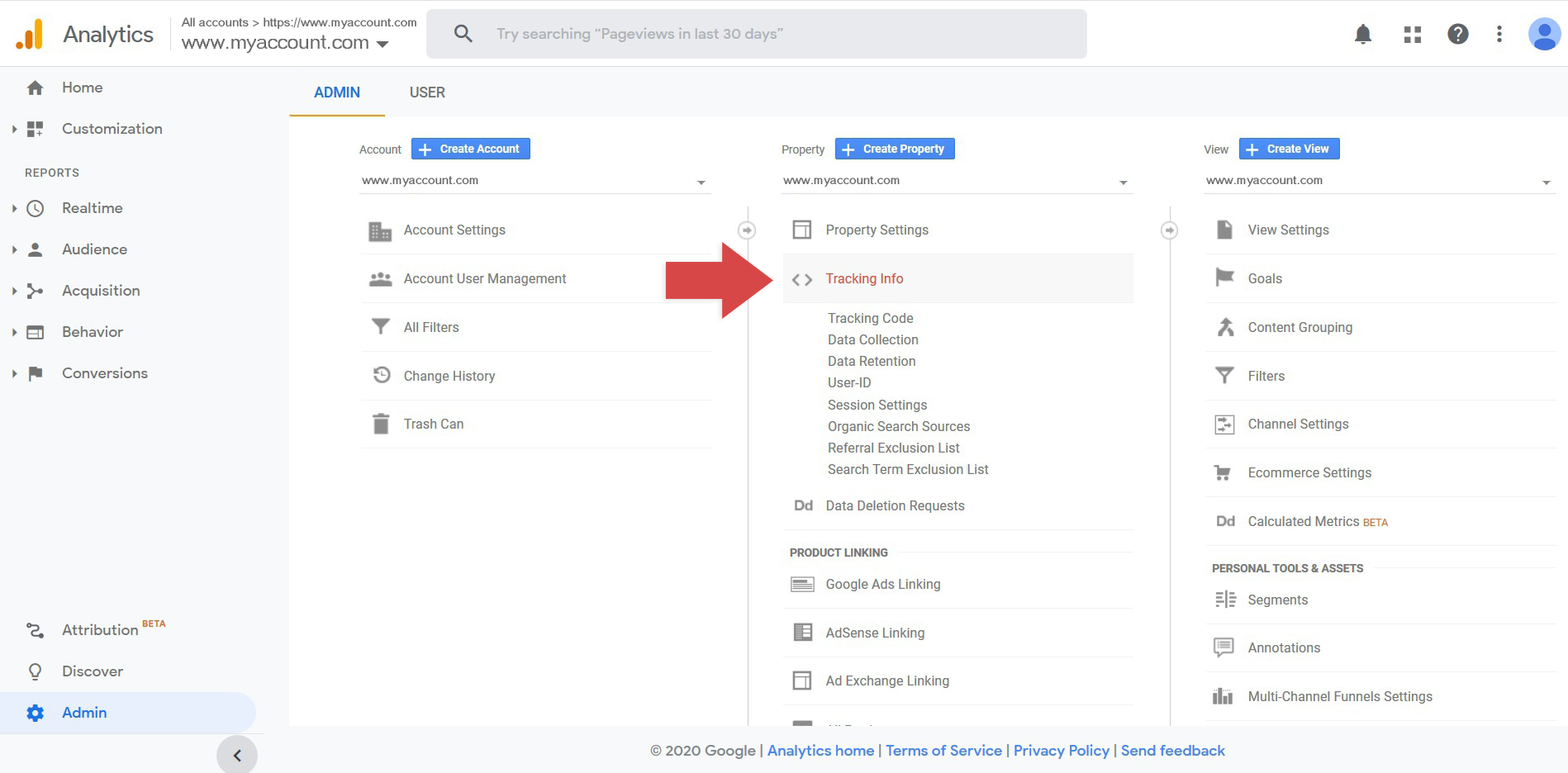
- Click "Referral Exclusion" List
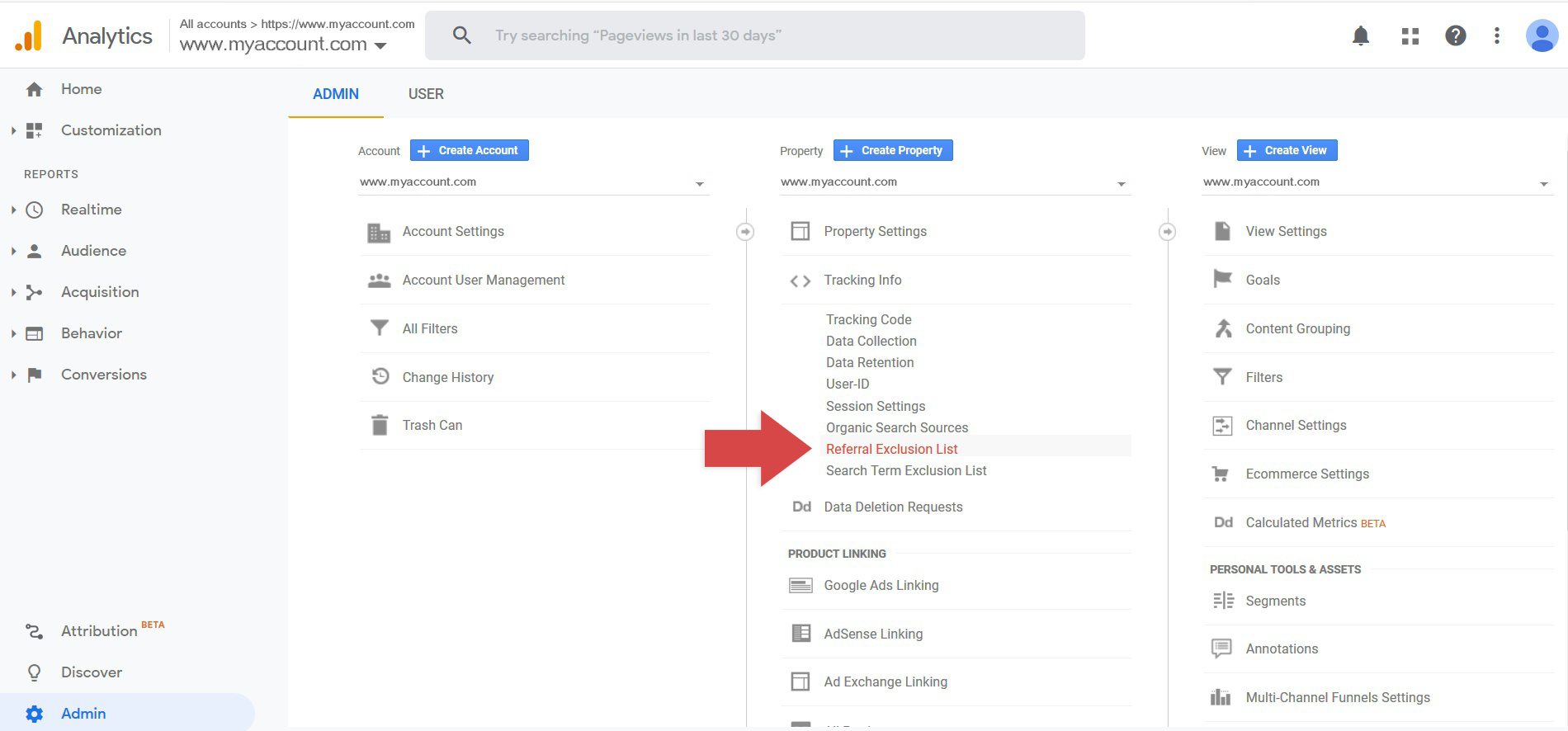
- Click the "Add Referral Exclusion" button
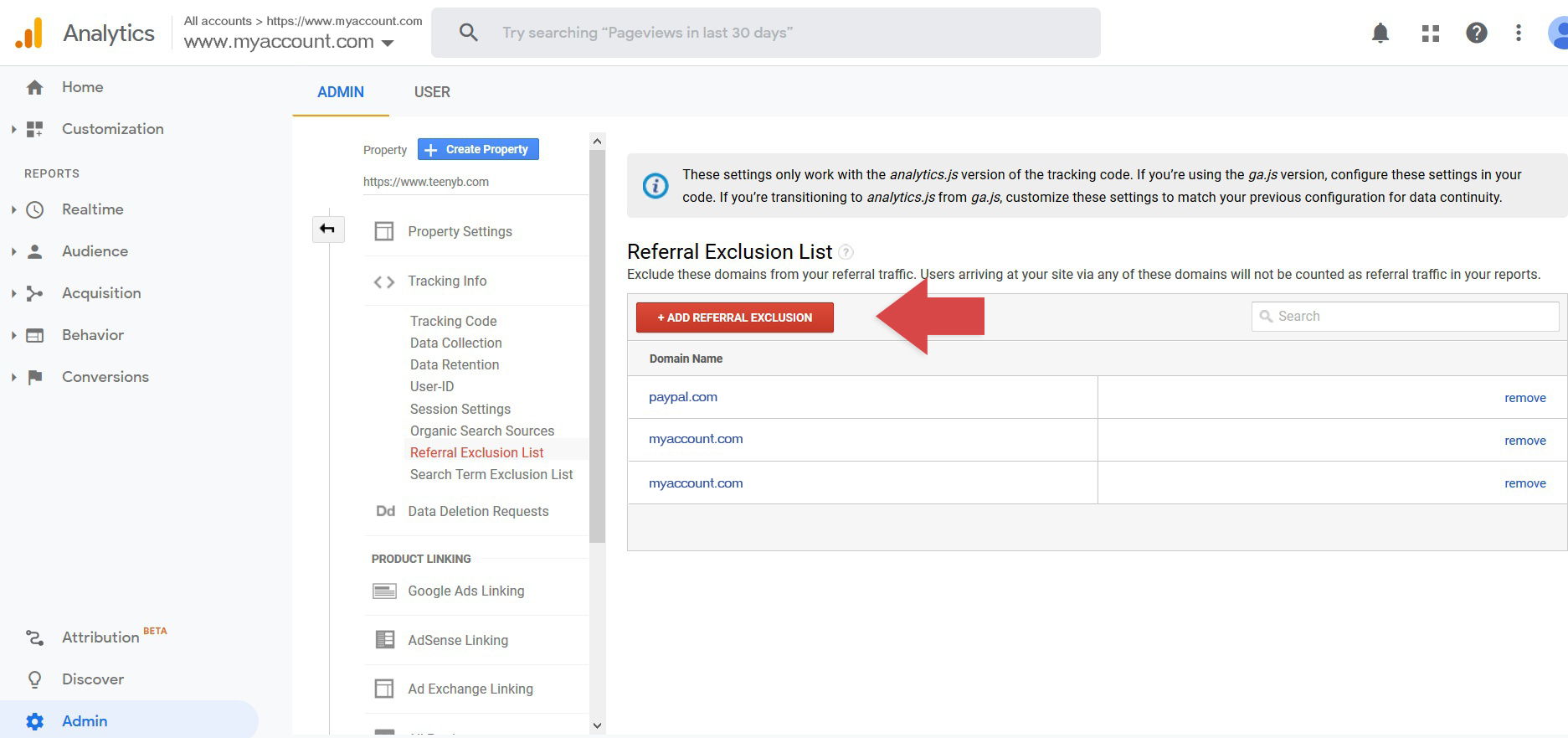
- Add "paypal.com" to the blank field and click the "Create" button
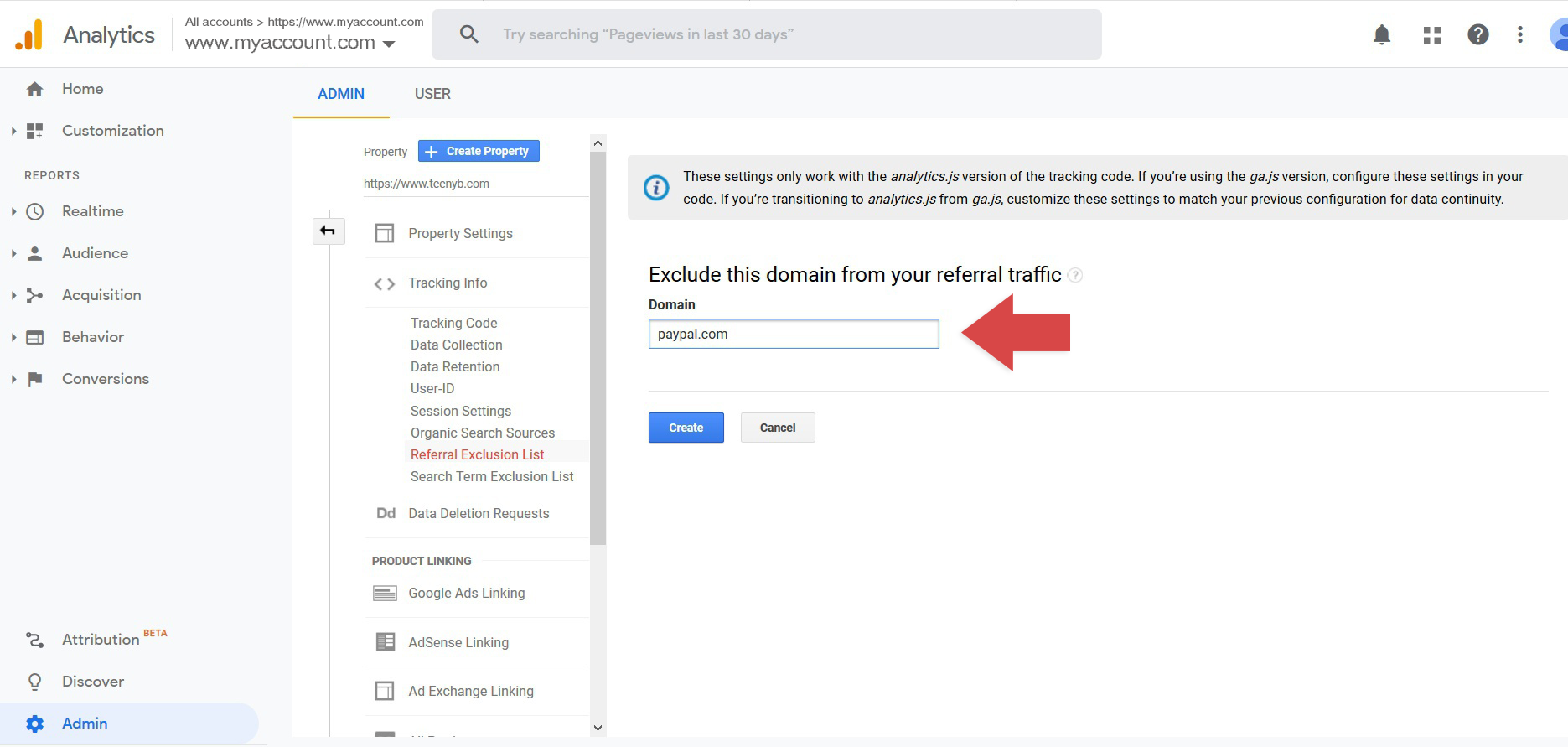
And that's it. It can take several days for applicable transactions to clear the attribution window, but then PayPal will no longer show as a referrer. The proper attribution for search engines, paid ads, social media, and true referrals will start to show up.
Important Note
This change is not retroactive, meaning it will only affect new analytics data and not anything from the past. This is crucial to remember when doing data comparisons. It's easy to forget that this change was made (and when) and the following year wonder why, for example, organic revenue suddenly jumped upwards. We recommend that you make a public annotation of this change in Google Analytics so anyone reviewing your analytics data will be able to see the details of this change.